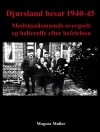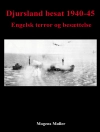This electronic version has been made available under a Creative Commons (BY-NC-ND) open access license. This is the first monograph-length study that charts the coercive diplomacy of the administrations of Richard Nixon and Gerald Ford as practised against their British ally in order to persuade Edward Heath’s government to follow a more amenable course throughout the ‘Year of Europe’ and to convince Harold Wilson’s governments to lessen the severity of proposed defence cuts. Such diplomacy proved effective against Heath but rather less so against Wilson. It is argued that relations between the two sides were often strained, indeed, to the extent that the most ‘special’ elements of the relationship, that of intelligence and nuclear co-operation, were suspended. Yet, the relationship also witnessed considerable co-operation. This book offers new perspectives on US and UK policy towards British membership of the European Economic Community; demonstrates how US détente policies created strain in the ‘special relationship’; reveals the temporary shutdown of US-UK intelligence and nuclear co-operation; provides new insights in US-UK defence co-operation, and re-evaluates the US-UK relationship throughout the IMF Crisis.
Содержание
Introduction 1. Re-assessing foreign policy, 1969-72 2. A year of discord, 1973–74 3. Wilson returns, 1974–76 4. All out of money, 1976–77 Conclusion Select Bibliography Index
Об авторе
Thomas Robb is Senior Lecturer in History at Oxford Brookes University












